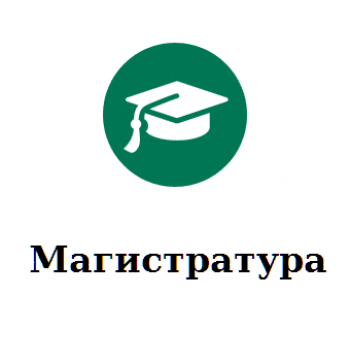Master

In the medieval universities there were the following academic degrees: bachelor, master and PhD, but in some countries there is only academic degrees: bachelor, licentiate and doctor of philosophy[2]. In 1240 the master received the right to elect the rector.
In the Middle ages a master's degree — Magister artium liberalium (cont. M. A. L.) and was the teacher of the so-called free Sciences. It was subsequently awarded the degree at the philosophical faculty, by the nineteenth century supplanted the degree of doctor of philosophy. In XIX—XX centuries a master's degree, inferior in relation to doctoral, remained in England and Russia.
In the Russian Empire, a master's degree in various Sciences existed in all faculties except the medical. Master of science degree in pharmacy and master of veterinary science was the highest in its field. Master's degree received a person that at the end of a University course kept the special oral test in the known branches of science defended publicly and approved by a faculty thesis. In particularly good cases, the faculty would be allowed to test for the degree of master and the person submitting the doctoral diploma of a foreign University. Face stood the master's exam, but not yet defended the dissertation, name of the student. In the case of particularly outstanding merit of a thesis, the faculty could apply for the construction of a student directly to a doctorate. Having a master's degree could ask for a reckoning in hereditary honourable citizenship; when applying for civil service they were entitled to the rank of class IX. Masters could be appointed extraordinary professors of the universities. The masters were given the same academic distinctions, like doctors, only gold and silver. Orthodox spiritual Academy could dignify the degree of master of theology.
Each bachelor was thinking about how to do the second part of higher education – a magistracy. Early education was solid, that is 5 years and you graduate, able to teach, and work in any field.
Since 2011, Kazakhstan has moved to the Bologna system of education which includes 4 years of undergraduate and 2 years graduate. Master – is able to stay within the walls of a University for another two years, a real chance to get another profession or to upgrade their skills for current profession.
Master is not only paid training, but the opportunity to enroll in the state budget for the contest, but as the master's degree is the second higher education, it is considered to be a continuation thereof.
Attention! The free space of the master can do only bachelors or graduates enrolled in a special program involving a two-tier system of training 'bachelor – master'
Unlike bachelor's from master's at first glance but if you delve stronger, the baccalaureate is a basic higher education level, and the master, the second (still have a specialist who has a ligament, passing from the first stage to the second. In addition, the master's degree is a more advanced form in the selected sphere of activity, this additional term career growth. For a long time have positions for which enough and the title of bachelor, but also those that will be assigned only to specialists master's level.
As an example, we can use candidates who want to apply for the post of civil service.
Group and category of civil service positions*
The level of vocational education
• Category 'heads' the higher, main and leading groups of civil service positions
• The category 'assistants (advisers)' the higher, main and leading groups of civil service positions
• Category 'specialists' of the highest, chief and leading group positions
Higher education — specialist's, master's
• Category 'experts' the senior groups of posts
The category 'providing experts' leading group of posts
Higher education — bachelor
• The category 'providing experts' the senior and younger groups of posts
Vocational secondary education
Programs graduate programs are quite complicated in comparison with higher education of a bachelor degree, they have more in-depth study of theory and practice, preparing the student for research work or professional activities. From the very first day of training to the head masters are attached from among doctors or candidates of Sciences, graduate Student himself determines himself the direction of scientific research and subsequent thesis. Unlike the bachelors, masters unable to teach at higher education institutions.
A person wishing to enter a master must have higher professional education and hands have a diploma of bachelor, specialist with higher education, master degree and specialist and the result of the Unified National test on hand.
It is not necessary to have a University degree of a specialist of a certain profession. You can obtain a qualification different from the first, for example, a master's degree in the field of 'Translation studies' and to hold a bachelor degree in Programmer.
How to enter the magistracy?
For admission to the master's degree is enough to successfully pass a comprehensive examination in an interdisciplinary field of study (oral). Minimum score (.pdf) for participation in the contest is 50 to 60 depending on the program.
Training in a magistracy is possible for full-time or correspondence forms of training (for directions 'Advertising and public relations' and 'Linguistics' — for full-time and part-time).
Students-undergraduates (full-time) include all rights of undergraduate students: scholarship (budgetary basis), a place in a hostel, reduced travel, deferment and so on.
